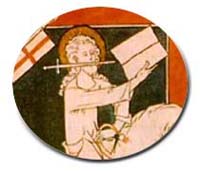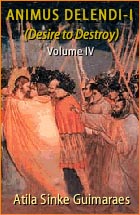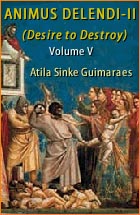Forgotten Truths
 |
 |
 |
 |
 |
 |
 |
Continence Is the Great Lever
of Human Society
After praising the shining virginity embraced by St. Cecilia in the time of the Early Church, Dom Guéranger reminds the faithful that continence is to be practiced in every state of life of Catholics.
Continence not only reveals to man the secret of his dignity and elevates his whole being, but is the great lever of human society. When love of it becomes extinct, civilization decays and falls. Its renewal and restoration is essential to a sound Catholic society.
Continence not only reveals to man the secret of his dignity and elevates his whole being, but is the great lever of human society. When love of it becomes extinct, civilization decays and falls. Its renewal and restoration is essential to a sound Catholic society.
Dom Prosper Guéranger
But we must not think that today's feast (November 22) is meant to excite in us a mere theoretical and fruitless admiration for St. Cecilia. The Church recognizes and honors in St. Cecilia three characteristics, which, united together, distinguish her among the Blessed in Heaven, and are a source of grace and an example to men.
These three characteristics are, virginity, apostolic zeal and the superhuman courage that enabled her to bear torture and death. Such is the threefold teaching conveyed by this one Christian life.
In an age so blindly abandoned as ours to the worship of the senses, is it not time to protest, by the strong lessons of our faith, against a fascination that even the children of the promise can hardly resist? Never, since the fall of the Roman Empire, have Moral customs, and with them the family and society, been so seriously threatened.
For long years, literature, the arts, the comforts of life, have had but one aim: to propose physical enjoyment as the only end of man's destiny. Society already counts an immense number of members who live entirely a life of the senses. ...
Yes, the family itself, the family especially, is menaced. It is time to think of defending itself against the legal recognition, or rather encouragement, of divorce. It can do so by one means alone: by reforming and regenerating itself according to the law of God, and becoming once more serious and Christian. Let marriage, with its chaste consequences, be held in honor. Let it cease to be an amusement or a speculation. Let fatherhood and motherhood be no longer a calculation, but an austere duty: and soon, through the family, the city and the nation will resume their dignity and their vigor.
But marriage cannot be restored to this high level unless men appreciate the superior element, without which human nature is an ignoble ruin: This heavenly element is continence. True, all are not called to embrace it in the absolute sense; but all must do honor to it, under pain of being delivered up, as the Apostle expresses it, to a reprobate sense.
It is continence that reveals to man the secret of his dignity, that braces his soul to every kind of devotedness, that purifies his heart and elevates his whole being. It is the culminating point of moral beauty in the individual, and at the same time the great lever of human society. It is because the love of it became extinct, that the ancient world fell to decay. But when the Son of the Virgin came on earth, he renewed and sanctioned this saving principle, and a new phase began in the destinies of the human race.
The children of the Church, if they deserve the name, relish this doctrine, and are not astonished at it. The words of our Savior and of His Apostles have revealed all to them; and at every page, the annals of the Faith they profess set forth in action this fruitful virtue, of which all degrees of the Christian life, each in its measure, must partake.
St. Cecilia is one example among others offered to their admiration. But the lesson she gives is a remarkable one, and has been celebrated in every age of Christianity. On how many occasions has Cecilia inspired virtue or sustained courage; how many weaknesses has the thought of her prevented or repaired!
Such power for good has God placed in his Saints, that they influence not only by the direct imitation of their heroic virtues, but also by the inductions which each of the faithful is able to draw from them for his own particular situation.
The Liturgical Year: The Time After Pentecost,
London: Burke & Oakes Ltd, 1908, 3rd ed.,
Volume 15, pp. 317-319
London: Burke & Oakes Ltd, 1908, 3rd ed.,
Volume 15, pp. 317-319

Posted February 6, 2021
















